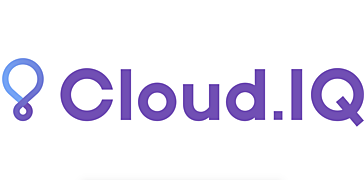3.75
Mustache Review
Read our comprehensive Mustache review! Explore its key features, security, pricing, and support options. Is it worth the money? See if the latest updates fit your needs!

Introduction to Mustache
Welcome to our comprehensive Mustache review! If you're looking for a powerful yet simple templating engine, Mustache might be the perfect fit. This logic-less template system is designed to keep your code clean and maintainable, separating presentation from logic. Getting started with Mustache is straightforward, and its intuitive syntax makes it a favorite among developers for various applications.
Mustache excels at generating dynamic content for web pages, emails, configuration files, and more. Understanding Mustache basics is crucial for leveraging its full potential. This review will explore the benefits of Mustache, its core features, and how it compares to other templating languages. We'll dive deep into practical examples to illustrate Mustache's capabilities, helping you decide if it's the right tool for your next project.
Comprehensive overview and target audience
Comprehensive overview of Mustache and target audience
Mustache is a logic-less templating engine. It’s designed for clean separation of presentation and logic. This simplicity makes it a favorite among developers aiming for maintainable code. It finds particular favor in web development; generating HTML, configuration files, and even code.
The primary target audience for Mustache includes:
- Front-end developers: Using it to render dynamic content in web applications.
- Back-end developers: Employing it for server-side rendering and generating configurations.
- Full-stack developers: Bridging the gap between front-end and back-end presentation.
- DevOps engineers: Automating the creation of configuration files.
Considering its ease of use and wide applicability; the Mustache value for money is significant. It is open-source; thus free to use. It reduces development time by streamlining templating processes.
Looking at its longevity; Mustache updates and new features aren’t frequent. The core functionality remains stable. Implementations across different languages evolve; adapting to respective ecosystems. These implementations may introduce features specific to those languages. However; the core Mustache specification stays consistent.
Regarding Mustache security features; it inherently mitigates certain vulnerabilities. Its logic-less nature prevents the execution of arbitrary code within templates. However; developers must still sanitize data before passing it to Mustache; guarding against injection attacks outside the templating engine itself.
A direct Mustache pricing comparison is generally irrelevant due to its open-source nature. However; alternatives like Handlebars or Jinja2 might offer extended functionalities. These could potentially justify associated costs for commercial licenses or support contracts; if needed for specific projects.
Mustache support and training resources are primarily community-driven. The official Mustache website offers basic documentation. Numerous tutorials; articles; and Stack Overflow discussions provide ample learning material. Implementations in various languages often come with their own documentation and community support channels.
User experience and functional capabilities
User experience and functional capabilities
Regarding Mustache user experience insights; its simplicity is both a strength and a limitation. The logic-less nature makes templates easy to read and maintain. This reduces cognitive load for developers. However; complex logic must be handled outside the template; potentially increasing code complexity elsewhere. The learning curve is minimal; making it accessible to developers of all skill levels.
How to use Mustache effectively involves understanding its basic syntax. Variables are rendered using double curly braces {{variable}}. Sections, denoted by {{#section}} and {{/section}}, iterate over lists or conditionally render content based on boolean values. Inverted sections, using {{^section}}, display content when a variable is false or an empty list. Comments are indicated by {{! comment }}. Mastering these elements is crucial for leveraging Mustache’s capabilities.
For a comprehensive Mustache implementation guide; consult the official documentation and language-specific implementations. These resources provide detailed explanations of syntax; features; and best practices. Many libraries offer extensions and helpers to enhance Mustache’s functionality; such as custom formatters or conditional logic. These extensions vary across different languages and ecosystems.
Common problems with Mustache often stem from its limitations. Lack of built-in helpers for formatting or advanced logic can be challenging. Debugging templates can also be difficult; as error messages may not always be informative. Performance issues can arise with very large templates or complex data structures. Developers should be mindful of these potential pitfalls and consider alternative templating engines for projects with demanding requirements.
Integrating Mustache with other tools is generally straightforward. It works well with various programming languages and frameworks. For example; in JavaScript; it can be used with libraries like jQuery or React for dynamic web page rendering. In Python; it can be integrated with frameworks like Flask or Django for server-side templating. The ease of integration makes it a versatile choice for diverse projects.
Regarding Mustache updates and new features; the core specification remains relatively stable. New features are primarily introduced through language-specific implementations. These updates often focus on performance improvements; bug fixes; and extensions to the core syntax. Developers should stay informed about updates to their chosen implementation to leverage the latest enhancements.
Best practices for Mustache templating include keeping templates concise and readable. Complex logic should be handled outside the template. Data should be properly sanitized before rendering to prevent security vulnerabilities. Templates should be thoroughly tested to ensure accuracy and performance. Code reuse can be improved by using partials or includes where available.
Who should be using Mustache
Who should be using Mustache
Mustache is a versatile templating engine that caters to a broad spectrum of developers and projects. Its logic-less nature makes it particularly appealing for those seeking a clean separation between presentation and logic. This characteristic is valuable in collaborative environments where designers and developers work closely; as it allows designers to modify templates without the risk of introducing complex code errors.
A typical Mustache use case scenario involves generating dynamic content for web applications. For example; a front-end developer might use Mustache to render user profiles; product listings; or blog posts based on data retrieved from an API. Similarly; back-end developers can leverage Mustache for server-side rendering; generating HTML emails; or creating configuration files tailored to specific environments. Full-stack developers benefit from Mustache’s ability to bridge the gap between front-end and back-end presentation; ensuring a consistent user experience across the entire application.
DevOps engineers also find Mustache useful for automating the creation of configuration files. By defining templates with placeholders for environment-specific variables; they can easily generate configurations for different servers or deployments. This reduces the risk of errors and streamlines the deployment process.
To maximize the benefits of Mustache; it is essential to follow Best practices for Mustache templating. This includes keeping templates concise and readable; handling complex logic outside the template; and sanitizing data before rendering to prevent security vulnerabilities. Thoroughly testing templates is crucial to ensure accuracy and performance; while code reuse can be improved by using partials or includes where available.
In summary; Mustache is an excellent choice for developers who value simplicity; maintainability; and a clear separation of concerns. Its wide applicability and ease of integration make it a valuable tool for a diverse range of projects.
Unique Features offered by Mustache
Customization options and Unique Features offered by Mustache
While Mustache prides itself on its logic-less nature, it offers several customization options and unique features to enhance its functionality. These features primarily revolve around how different implementations adapt the core specification to suit specific languages and ecosystems. Implementations may introduce features specific to those languages. However; the core Mustache specification stays consistent. One aspect of customization involves extending Mustache with helpers or filters, which allow you to pre-process data before it’s rendered in the template. These helpers can be used for formatting dates, transforming text, or performing other common operations. They help to enhance the overall Mustache for small businesses workflow.
Another key feature is the use of partials or includes, which allow you to reuse template fragments across multiple templates. This promotes code reuse and reduces redundancy, making your templates more maintainable. Partials are particularly useful for creating consistent layouts or reusable components within your application. Moreover, some implementations offer advanced features like custom delimiters or template inheritance, providing even greater flexibility.
Integrating Mustache with other tools is another area where customization shines. Its simple syntax and wide availability across different programming languages make it easy to integrate with various frameworks and libraries. For instance, it can be seamlessly integrated with JavaScript frameworks like React or Vue.js for dynamic front-end rendering, or with server-side frameworks like Node.js or Python’s Flask for generating HTML emails or reports. The possibility of Customizing Mustache for business growth by easily integrate to third party tools is something that gives value to the company.
It’s important to note that customization options may vary depending on the specific Mustache implementation you’re using. Some implementations may offer more features or extensions than others. Be sure to consult the documentation for your chosen implementation to learn more about the available customization options.
Pain points that Mustache will help you solve
Mustache addresses several common pain points in software development, particularly those related to templating and dynamic content generation. One significant issue it resolves is the tight coupling of logic and presentation. Traditional templating systems often embed code directly within templates, making them difficult to read, maintain, and debug. Mustache’s logic-less approach enforces a clear separation of concerns, allowing developers to focus on data manipulation in the code and designers to focus on presentation in the templates. This separation streamlines workflows and reduces the risk of errors when modifying templates.
Another problem Mustache tackles is the complexity of template syntax. Many templating languages have intricate syntax rules and features that can be challenging to learn and use effectively. Mustache’s syntax is intentionally simple and intuitive, making it easy for developers of all skill levels to create and maintain templates. The straightforward syntax also reduces the cognitive load for developers, allowing them to focus on the core logic of their applications.
Mustache simplifies the process of generating dynamic content for various applications. Whether you’re rendering web pages, generating configuration files, or creating HTML emails, Mustache provides a consistent and efficient way to populate templates with data. Its wide availability across different programming languages and frameworks makes it a versatile tool for diverse projects. Integrating Mustache with other tools is generally straightforward, enhancing its applicability in complex software ecosystems.
Customizing Mustache for business growth can be achieved through its ability to generate tailored content for marketing campaigns, personalized user experiences, and automated reporting. By leveraging Mustache to create dynamic emails or customized landing pages, businesses can improve customer engagement and drive conversions. Moreover, Mustache for different business sizes can be valuable because it is a scalable solution that adapts from small startups to large enterprises. Its simplicity allows smaller teams to implement it quickly, while its robust nature supports the demands of large-scale applications. The core benefits are maintained no matter the size of the organization.
Scalability for business growth
Scalability for business growth
Scalability is a critical factor for any business aiming to expand its operations and reach a wider audience. Mustache can play a significant role in achieving this scalability, primarily by simplifying the process of generating dynamic content across various platforms and channels. Its logic-less architecture ensures that templates remain clean and maintainable, even as the volume of data and the complexity of the application grow. This clean separation of concerns reduces the risk of errors and makes it easier to scale the application without introducing new bugs or performance bottlenecks.
One of the key ways Mustache supports scalability is by enabling efficient content reuse. With features like partials and includes, developers can create reusable template fragments that can be easily incorporated into different parts of the application. This reduces redundancy and ensures consistency across the entire user experience. As the business expands and new features are added, these reusable components can be leveraged to quickly generate new content without having to create everything from scratch.
Furthermore, Customizing Mustache for business scalability is possible through its adaptable nature and ease of integration with other tools and systems. As the business grows, it may need to integrate with new platforms, such as e-commerce systems, CRM solutions, or marketing automation tools. Mustache’s simple syntax and wide availability across different programming languages make it relatively easy to integrate with these systems, allowing businesses to seamlessly generate dynamic content for these new channels. By automating these processes with Mustache, teams can focus on other key initiatives that help drive growth, Customizing Mustache for business growth, while ensuring a seamless user experience.
Ultimately, Mustache’s scalability benefits stem from its core design principles: simplicity, maintainability, and reusability. By embracing these principles, businesses can leverage Mustache to efficiently generate dynamic content at scale, supporting their growth initiatives and reaching a wider audience with ease.
Final Verdict about Mustache
### Final Verdict about Mustache
So, what’s the final verdict on Mustache? It’s a solid templating engine that excels in simplicity and maintainability. Its logic-less nature forces a clean separation of concerns. This benefits teams seeking clear distinctions between presentation and application logic. For projects where templates are frequently modified by designers; or where strict consistency is paramount, Mustache shines. It’s easy to learn and implement; making it accessible to developers of varying skill levels.
However; the very feature that makes it appealing, its logic-less design; can also be a limitation. Complex logic must be handled outside of templates; potentially increasing code complexity elsewhere. It lacks built-in helpers for common tasks such as formatting or conditional rendering. This might require extra coding or the use of external libraries to achieve the desired outcome.
Despite these limitations; Mustache remains a strong choice for numerous scenarios. It’s perfect for generating dynamic content for web applications, configuration files, or email templates. Its wide adoption and availability across different programming languages make it a versatile tool for diverse projects. The open-source nature eliminates cost concerns; making it attractive for projects with limited budgets. Its scalability helps to support expansion initiatives.
Ultimately; the decision to use Mustache depends on the specific requirements of your project. If you prioritize simplicity, maintainability, and a clear separation of concerns, Mustache is an excellent choice. If you need more advanced features or complex logic within your templates, you might consider alternative templating engines. But for many developers; the benefits of Mustache outweigh its limitations; making it a valuable addition to their toolkit. The **final verdict on Mustache** is positive; it offers a streamlined and effective solution for templating needs in a variety of contexts.
Advantage
Disadvantage
Easy to apply and style
Adds character and style quickly
Boosts confidence and masculine appeal
Relatively low maintenance grooming
Can define your personal aesthetic
Disadvantage
Can be time-consuming to style and maintain
Requires specific products for optimal results
May not be suitable for all face shapes
Potential for food and drink to get caught
Initial growing phase can be itchy
Rating
Open Source
$0 One_time Logic-less templates/Multi language support/Client and server side
Web Based
Windows
Mac OS
Linux
Android
iOS
Phone Support
Email/Help Desk
AI Chat Bot
Live Support
24/7 Support
Forum & Community
Knowledge Base
Live Online
Documentation
Videos
In Person
Webinars
Implementation
Web Based
Windows
Mac OS
Linux
Android
iOS
Support
Phone Support
Email/Help Desk
AI Chat Bot
Live Support
24/7 Support
Forum & Community
Knowledge Base
Training
Live Online
Documentation
Videos
In Person
Webinars
Group text
Alternative Products
Mustache is a logic-less templating engine, and its implementations exist across various platforms and languages. It doesn't offer specific, pre-built applications for operating systems like Windows or macOS. Instead, it provides libraries that developers can integrate into their projects. Therefore, directly offering (Web Based, Windows, Mac OS, Linux, Android, iOS) is not how Mustache functions. Its availability depends on the programming language implementation used.
Documentation, Videos
Forum & Community, Knowledge Base
Frequently Asked Questions
Is Mustache worth it?
Whether Mustache is “worth it” depends entirely on your needs and content creation goals. If you’re looking for AI-powered assistance to refine your written content and gain insights into its effectiveness, then it could be a valuable tool. However, if you’re seeking in-depth, human-level critique and are unwilling to rely on AI-driven feedback, it might not be the right fit.
How can Mustache help me?
Mustache can help you improve your writing clarity, identify potential issues with tone and engagement, and optimize your content for your target audience. It provides suggestions for improving grammar, vocabulary, and overall style, ultimately aiming to make your writing more impactful.
What type of content does Mustache review?
Mustache reviews written content of various types, including articles, blog posts, website copy, marketing materials, and even creative writing pieces. It focuses on aspects like grammar, clarity, tone, engagement, and audience suitability.
How does Mustache determine the quality of content?
Mustache leverages AI algorithms to analyze content based on a variety of factors, including readability scores, sentiment analysis, keyword usage, and grammatical accuracy. It compares your content against a database of high-quality writing to identify areas for improvement and provides data-driven recommendations.
Can I request specific feedback on my content?
The availability of specific feedback requests depends on the platform’s features. Check if the platform allows you to specify what aspects of your content you would like to focus on (e.g., tone, clarity, engagement).
How much does a Mustache review cost?
The cost of a Mustache review varies depending on the platform, subscription plan, content length, and features offered. Check the platform’s pricing page for specific details.
How long does it take to get a review?
The turnaround time for a Mustache review is typically quite fast, often providing feedback within minutes or even seconds. This is due to the automated nature of the AI analysis.
What are Mustache's qualifications to review content?
Mustache’s qualifications to review content stem from the AI algorithms and natural language processing models it employs. These models are trained on vast datasets of text and are designed to identify patterns and suggest improvements based on established writing principles. However, remember that AI-driven feedback is not a replacement for human judgment and expertise.





